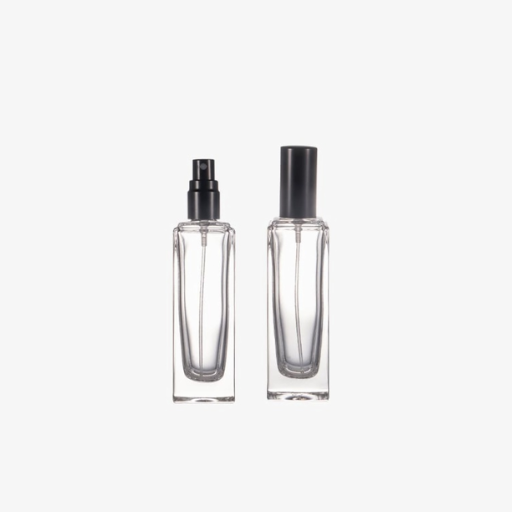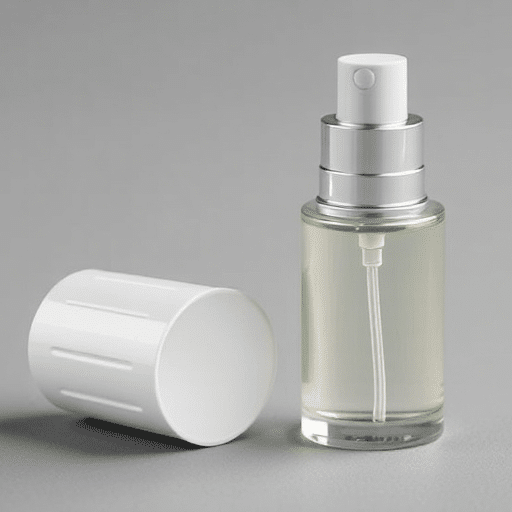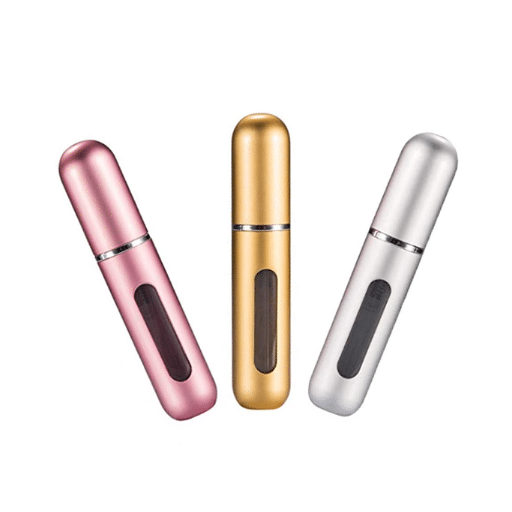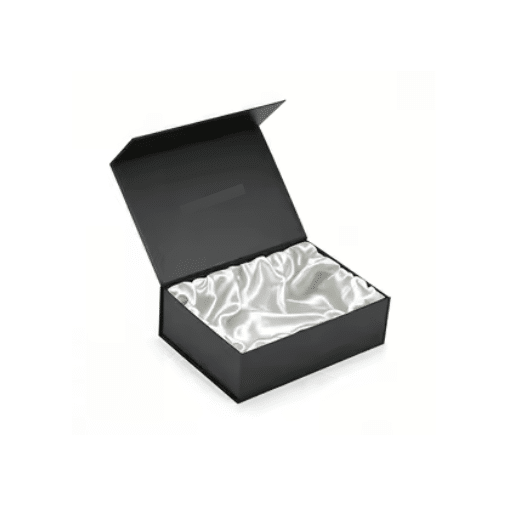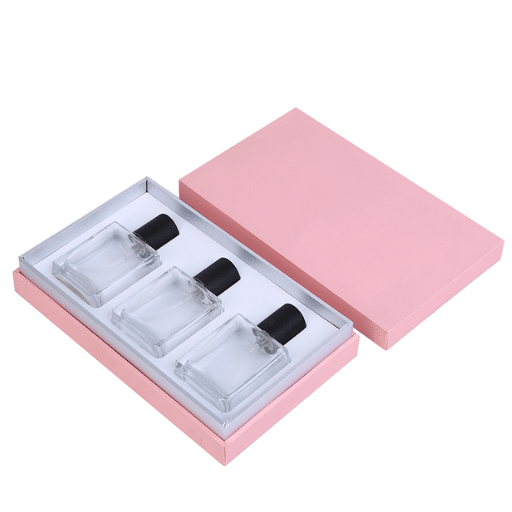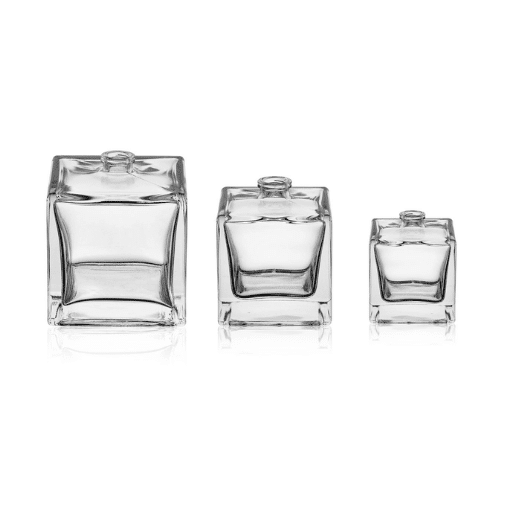Perfume is more than just a scent – it’s a part of yourself. It’s a style ornament too. That said, preserving a delicate balance of light, heat, and various other external factors can be extremely challenging. Exposure to ingredients can alter the balance of fragrance composition which can effectively ruin a scent. In this blog, we’ll talk to you about different methods of preserving your perfumes, making sure they stay fresh and radiant in their appealing beauty until the very day you buy them. No matter whether you’re a casual wearer or an aficionado, everyone can benefit from these tips.
What’s the best way to store perfume to maintain its quality?
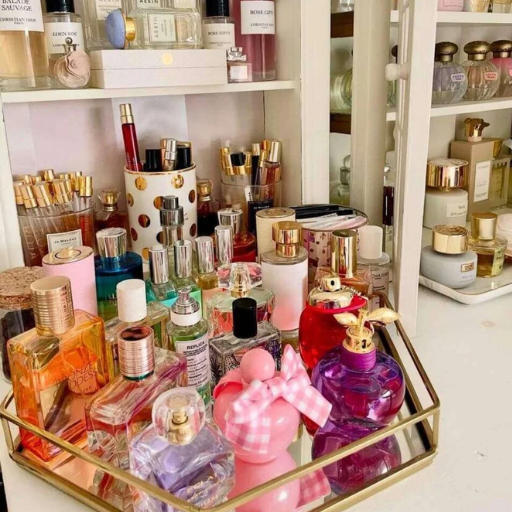
To maintain the quality of perfume, keep them away from direct sunlight and fluctuating temperatures. Moreover, bathrooms along with other high-humidity places could drastically alter the composition of chemical scent ingredients due to heat and moisture. Ideally, shoeboxes are excellent places to keep your bottles snug which further cuts down the light exposure. Lastly, your perfume bottles have to be sealed tightly to avoid evaporation which damages the perfume inside.
Why storing perfume in its original packaging matters
Keeping perfume in its original packaging is imperative to retain its scent and quality. Packing boxes aid in the protection of the perfume from light damage which may deteriorate the scent of the perfume. Specific scientific research has proven that UV light can destroy fragrance molecules creating an imbalance not only in the scent but also the color of the perfume. Moreover, the box also protects the perfume from extreme weather conditions such as heat or humidity. The ingredients contained in the perfume require its balance to be preserved to retain its fragrance for an extended period so, adding the box helps in achieving that. Maintaining fragrances in their original boxes allows some perfumes to keep their integrity for years, unlike fragrances that are exposed to light which tend to degrade within months. This practice goes a long way in ensuring that fragrances remain effective while protecting the investment made on them.
The impact of temperature fluctuations on your fragrance
Quality and the long durability of my fragrances can be impacted by extreme temperature changes. I have learned that putting them in high heat can drastically break down some of the ingredients and cause the original scent profile to change, while cold temperatures can temporarily weaken their effectiveness. Therefore, I try to keep my perfumes in a cool, controlled space without direct sunlight or high temperatures, so it does not lose their scent and can perform well over time.
How oxidation affects your perfume’s scent profile
Oxidation is a chemical process that happens very frequently on perfume and can impact scent profile for the worse with time. When perfume contacts oxygen, some of the ingredients can begin to break down or change, resulting in an altered perfume that is no longer balanced. On top of that, top notes, which are the most volatile and fragile, tend to be the first ones to get hit by oxidation. Taking lemon and bergamot citrus notes for example, they tend to become less lively and vibrant and eventually turn dull or sour.
Research has found that overheating, exposure to light, and oxygen can trigger the breakdown of essential oils and aromatic compounds through oxidation which may result in the formation of unfavorable odors. It has also been discovered that perfumes placed in airtight opaque containers are better protected from damage since the confined space limits exposure to oxygen and UV light, allowing the perfumes to maintain their integrity for a longer period. Adequement storage conditions will significantly slow down the oxidation process, preserving the intended scent profile of the perfume for an extended time.
Does light exposure damage your perfume?
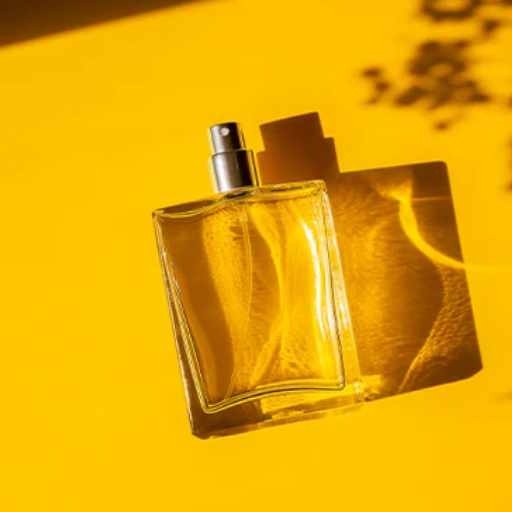
Excessive light can damage your perfume. The strong artificial or direct sunlight alters the chemical composition of the fragrance which may lead to changes in scent. To avoid this, it is best to store the perfume in a cool and dark space away from direct light. This will protect the perfume’s quality and prolong its lifespan.
Why direct sunlight is the enemy of perfume storage
Direct Sunlight Can Pose A Problem To Keeping Fragrance Fresh As It Can Alter The Composition Of The Perfume Itself. I’ve encountered cases of bad perfume storage where sunlight not only changed the scent but weakened the strength of the fragrance. If I want to keep my perfumes at the best condition possible, I store and preserve them in out-of-reach places that have a cool temperature free from any light.
How exposure to light triggers chemical reactions
Perfume molecules can be effectively broken down when exposed to light, especially ultraviolet and visible light. This is known as photodegradation, and it occurs when light is absorbed by certain compounds within the fragrance, resulting in numerous reactions that change the chemical structure as well as the composition. It has been determined through research that UV light has a proportional effect on sun damage on certain components such as essential oils, where oils will oxidize, and even free radicals will form, subsequently ruining the quality and stability of the scent. For example, one study found that fragrances containing oils left in direct sunlight would lose around seventy percent of their intensity in only a few weeks.
Leading to an even greater impact on the decline was the presence of citrus notes that are largely aldehyde-dominated, where compounded buildup would occur more rapidly under direct light exposure and lead to a faster overall change in scent and pigmentation. To control and lessen these declines, they are shipped in opaque and dark containers which removes bottled perfumes from exposure, increasing shelf life without losing composure. By recognizing and preventing the chemical reactions which are adverse to light, the shelf life is substantially increased.
The benefits of keeping perfume in a dark place
Dark places can enhance the quality and protect the longevity of your perfume. Exposure to light, especially UV rays, can trigger various chemical reactions even outside the fragrance molecules. This degrades the aroma and alters the quality of the perfume. Shunning the bottles from sun rays, helps in curbing oxidation which is considered extremely important for protecting top, middle and base notes, active ingredients, and the unique composition of the perfume.
Research indicates that darker environment is better for aroma preservation up to 30%. Also, dim environments that constrain light stifle the discoloration that happens when sunlight acts on essential oils and bases of the perfume. To achieve these results, perfume bottles should ideally be stored in closed cabinets or drawers which protects the oil from sunlight. In addition, ovens help maintain constant temperatures as well as minimal light. Adopting these measures protects investments made in high-quality fragrances while retaining the scent’s potency.
Is the bathroom a good place to store your fragrance?
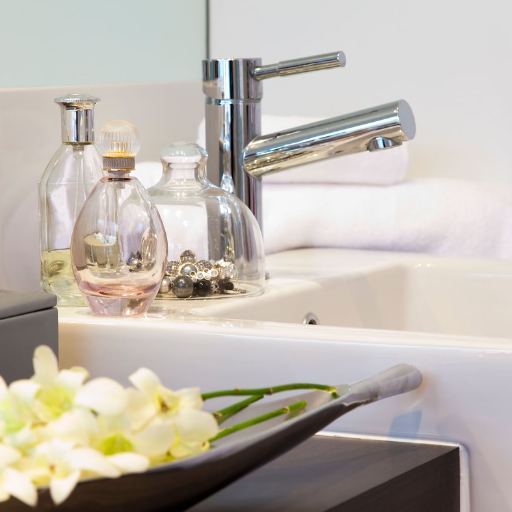
No, the bathroom is not a good place to keep your fragrance. The high temperatures and humidity in bathrooms can damage the perfume, causing it to lose its scent and quality over time. For best preservation, store your fragrance in a cool, dry place, free from heat and moisture.
The effects of humidity on perfume longevity
Storing perfumes in humid areas with high temperatures can dampen their strength and quality. An increase in the air’s moisture content can trigger a perfume’s mix of components to undergo unwanted chemical transformations that will negatively impact its quality. Also, improperly sealed containers permit vapor to enter which can aid in the rate at which the perfume composition breaks down. Research shows that fragrances are kept in humid environments to sustain their strength; they will lose it almost 25 percent faster than if stored in dry climates. Besides, alcoholic scents will be heavily affected since alcohol does not work well in hot and humid climates.
To avoid these consequences, placing the perfume bottles in a drawer or bedroom closet will do so since the humidity is lower. Storing them in sealed jars reduces exposure to air which increases the quality and shelf life the perfume will retain.
Why storing perfume in the bathroom shortens its life
The bathroom is a common place to store perfume because of its warm, private atmosphere. However, the temperature and humidity levels create an environment that is dangerous for perfume storage. When baths and showers are taken, the perfume is steamed. There is an overabundance of water vapor in the air. All of these changes can damage the alcohol and essential oil components within the perfume, resulting in a breakdown of the fragrance over time. Research states that in humid surroundings, perfumes devoid of their initial notes and freshness depreciate significantly quicker when compared to cooler, drier environments. Not only that, but the regular use of appliances and baths tends to emit heat which activates the chemical reactions, lowering the quality of the perfume. Making abstention from the bathroom to store perfumes will greatly aid in preserving the Ayurveda fragrance and other perfumes the user may have.
Better alternatives for proper perfume storage
To avoid harmful changes to the perfume properties and ensure its durability, the airdry, dark closet or drawer is suggested. Furthermore, the sun and UV rays can alter the perfume molecules, changing its composition and shortening its lifespan. It has been proven that constant exposure to light leads to the damaging of the perfume making it lose its positional charming and aromatic appeal.
A drawer or a cabinet in a room where the temperature remains fairly constant is an ideal location since fluctuating heat and cold can impact the fragrance. Research suggests that constant storage temperature, especially around 60-70°F 15-21°C, is the best for maintaining the integrity of perfume.
Moreover, opaque and sealed containers provide protection from air and light which oxidizes the liquid causing a loss in scent. For especially rare or valuable perfumes, consider using refrigerated storage. However, the container must be airtight to prevent moisture ingress. Following these storage guidelines helps extend the life of the perfume while balancing its aromatic notes.
How long can perfume last when stored correctly?
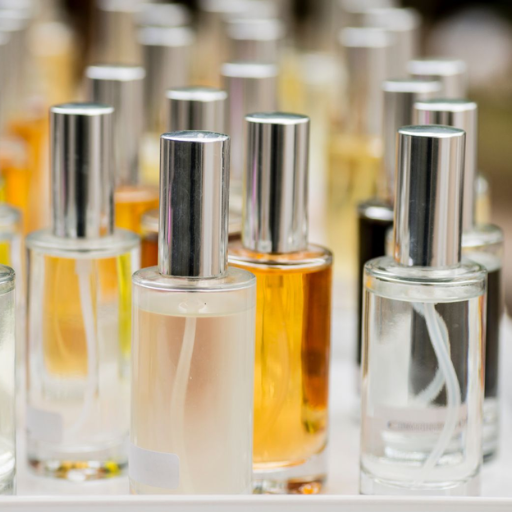
Perfumes have a shelf life of 3 to 5 years when properly stored. To extend the shelf life, perfume must be stored at a low temperature, away from direct sunlight, and dry. An additional means of improving storage conditions is keeping it in a dark or opaque glass bottle, to protect light degradation. It’s important to ensure that the perfume cap is snug so that the perfume doesn’t evaporate.
Factors that determine how long your perfume can last
1. Storage Conditions
To ensure high quality, storage conditions must be ideal for a specific perfume. Heat, air, and light can severely damage the fragrance’s chemical structure, leading to a weakened scent and a shorter lifespan. Research shows that perfumes having a consistent temperature between 50-65 degrees Fahrenheit in the dark last longer than those exposed to varying temperatures.
2. Ingredients And Composition
For longer-lasting storage, a fragrance must be comprised of natural oils, essences, and a reduced quantity of alcohol. Components that are more prone to degradation will result in a shorter lifespan. Alcohol also acts as a natural preservative, so a higher concentration would be beneficial.
3. Types of Fragrance
The type of fragrance also has a bearing on how long it lasts. Persian and oriental fragrances take woody notes as their base as they last longer than the rest. This is because the base notes are generally stronger. In contrast, floral and citrus scents tend to evaporate quickly and lose their strength because their notes are high and make them easily evaporate.
4. Design and Material of the Bottle
Fragrances contained in dark or opaque glass bottles are better protected against light exposure, which might speed up deterioration. The design of the cap and air-tight seals also prevents fragrance from evaporating as well as maintaining its freshness.
5. Use Interval
Every opening of the perfume bottle Oxidation becomes inevitable. Oxidation takes a long time, but a quick use will hasten the progression. This is especially true for fragrance bottles stored in bad condition. When a perfume is used, the cap should be replaced immediately to conserve the contents.
After considering these measures, one’s favorite fragrance can be kept clean as well as worn for an extended period.
Tips on how to store perfume to maintain its original scent
1. Store In a Cool Dry Place
Avoid heating or moistening perfume since heating increases the pace of chemical reactions occurring in the liquid. The integrity of perfume is kept best if storage temperature is maintained between 50 ̊F and 70 ̊F (10°C to 21°C).
2. Avoid Direct Sunlight
Light suns shine alters the delicate composition of perfume changing its construction and causing scent loss at a quicker rate. Bottles of perfume should be kept in shady places or draws.
3. Keep the Bottle Tightly Sealed
Exposing perfume to air lessens its fragrance which perpetrates oxidation. The cap must be securely fastened after each application to prevent air contact.
4. Store In Original Packaging
These boxes are specifically created to preserve the light and environmental conditions for the bottle. Keeping fragrance in their respective boxes supplies ample protection from external damage.
5. Maintain a Stable Temperature
Avoid placing perfumes where they can be constantly mixed with hot areas such as the top of a bathroom sink shelf. Usually, changing temperatures disrupt the order and stability of the scent molecules.
6. Avoid Storing in Refrigerators
Although it may appear sensible, refrigerators can be excessively cold, causing the scent’s delicate balance to deteriorate over time. Instead, use temperature-regulated spaces.
7. Minimize Movement
Do not regularly shake or move perfume bottles, as excessive transport can disrupt the perfume’s molecular structure.
If you follow these tips, you will be able to maintain the quality and longevity of your perfumes and enjoy their original scent for years.
Should you display your perfume collection or keep it hidden?
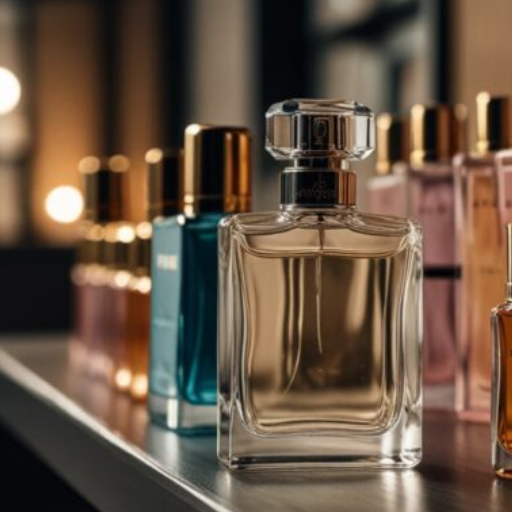
While showcasing your fragrance collection could enhance the decor of your space, it does not help in maintaining the quality of the perfumes. Moreover, light, heat, and temperature changes can damage their smell over some time. It is best to refrigerate perfumes and keep them sealed away from sunlight and direct light sources to preserve their quality over the years. Storing them in cabinets, drawers, or closed shelves preserves the fragrances from external factors.
How to display your perfume while minimizing exposure to air
Effectively showcasing a perfume while minimizing exposure to air requires creativity to ensure that the fragrance is enlarged from all angles. Closed displays made from glass or acrylic are highly polyfunctional as they can be placed anywhere and do not expose the perfume to air while still providing the chance for showcase. Research has shown that limiting air exposure to perfumes prolongs the quality of the fragrance, as perfume molecules are prone to oxidation and degradation over time.
Contemplate organizing your perfumes on trays with covers or within mirrored cabinets with soft LED illumination. The minimal heat generated by LEDs lowers the risk of damage to the fragrance. Statistically, fragrances stored in cooler environments, away from circulating air, retain their scent profiles much more effectively than those left unprotected. Thoughtful display arrangement allows for the admiration of the collection while preserving envelope life.
Storage tips for keeping your perfume collection fresh and long-lasting
Preferred Conditions For Storage
Storing fragrances appropriately is essential if you are looking to preserve both their quality and life span. Perfumes are best kept in a cool, dark place. Additionally, its ideal temperature should be kept between 60°F and 72°F. A change in temperature, particularly, an increase, and prolonged exposure to direct sunlight can fragment the molecular structure of a fragrance, leading to a change in scent and accelerated evaporation.
Avoid Heat And Moisture
Mold and mildew also stand to benefit richly from moisture, making it a vital factor to keep under control. Moisture also affects certain components in perfumes, notably during the summer months. It is imperative to keep fragrances away from bathrooms, as they are a prime candidate for humid environments. In addition, they should also be kept away from damp areas as moisture can enter bottles and dilute the scents. Using a dehumidifier is an ideal way to solve this in addition to air-tight cabinets to keep unwanted exposure at bay.
Utilize Protective Storage Features
Keeping perfume bottles in drawers or boxes provides additional protection, even if these cosmetics containers come with UV protective caps and are designed to shield the contents from sunlight. Furthermore, if room-temperature frosted glass display cabinets are available and you prefer to show off your collection, use those instead. In addition, try to avoid shaking perfume bottles too much, since this might agitate the liquid and introduce air, potentially ruining the capricious liquid’s balance.
Facts and Figures
As an example, experts suggest that optimal storage conditions of fragrances can increase their lifespan, with damages-perfumes lasting 3 to 10 years or more having properly stored lifespan extending in no noticeable changes ringing. Moreover, research indicates the presence of sunlight might reduce a perfume’s shelf life greatly by up to 50%, hence storage of such perfumes calls for more care.
What are the signs your perfume is no longer fresh?
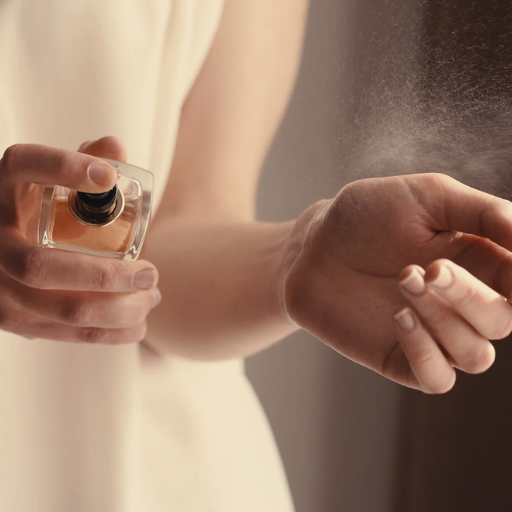
Signs Your Perfume Is No Longer Fresh
- Change in Scent: A noticeable alteration in the fragrance, such as it smelling sour, musty, or different from its original composition, is a clear sign your perfume has degraded.
- Color Change: Perfumes that have turned darker or appear discolored may no longer be fresh.
- Texture or Consistency: If the liquid has become cloudy or thicker, it could indicate that the perfume has spoiled.
- Sediment Formation: The appearance of particles or sediment in the bottle may suggest the fragrance has aged poorly.
If you notice any of these signs, it is best to discontinue use, as the perfume may no longer deliver its intended experience.
How to identify when your favorite perfume has deteriorated
Perfumes, which are painstakingly crafted compositions, at times are subjected to deterioration due to light, air, and heat due to their chemical makeup. To determine the decomposition of your treasured perfume, your favorite perfume requires monitoring both sensory and visual clues. Here are some extensively detailed points to think about.
1. When it comes to Scent Profile Changes: Over some time, a perfume’s scent may lose its integrity and result in a sour or overly sharp smell. The problem lies in the top, heart, and base notes as they can oxidize and change the balance of the composition.
2. Shelf Life of Perfume Ingredients: The different fragrance ingredients have different rates of degradation too. For instance, citrus-heavy scents have a shorter shelf life of about 2-3 years if properly stored. In contrast, woody or oriental fragrances can serve for 5-7 years.
3. Impact of Storage Conditions: It has been scientifically proven that storing perfumes in dark and cold places elongates their durability. Molecule heat and Sunlight speed up the deterioration process.
4. With Comparison with Original Packaging or Smell: It is advised by a plethora of brands to keep an eye on the batch codes, which helps validate the production date. If a fragrance is completely different from what one would expect upon opening the box, it indicates that it has expired.
5. Reduction in Alcohol Content: If a perfume’s bottle is loosely sealed, its alcohol content will evaporate over time. This can affect both the uniformity and the diffusion of the fragrance.
Evaluating these factors helps determine whether your perfume has aged beyond an optimal range and ensures that you can enjoy your favorite scents. For example, proper storage techniques where the bottle is kept in its original packaging and is protected from temperature fluctuations can slow down deterioration.
When it’s time to replace versus when to adjust storage methods
In deciding if a perfume needs a replacement, or simply reconsider the way it is stored, several factors need attention. If the scent of the perfume has changed drastically and has become overly sour, musty, or less complex, it is a clear indicator that the perfume has expired and should be disposed of. Storing perfumes comes with several guidelines, and most have a shelf life of three to five years, under optimal conditions. This rule of thumb also depends on the formulation and ingredients used. For instance, citrus-based perfumes tend to have a shorter life than woody and oriental perfumes.
If a fragrance shows minimal change in its scent but seems to evaporate quickly, that indicates improper storage, rather than expiration. Perfumes that are stored in warm, brightly lit, or humid surroundings are more susceptible to going ‘bad.’ Making adjustments to the storage location such as relocating the bottle to a dark, cool place or investing in airtight opaque atomizers can help the perfume last longer.
Research shows that perfumes exposed to constant sunlight can degrade 70% faster than perfumes kept in shaded areas. High-temperature shifts can also lower the duration and projection of the fragrance by more easily breaking down the perfume molecules. Adjusting storage methods when problems arise has the potential to maintain the integrity of the perfume which subsequently delays the time for replacement. It is important to differentiate between the expiration due to aging and storing related issues in order to make the right decisions.
Reference Sources
I found some studies and articles related to preserving perfume freshness, but none directly focus on specific methodologies for keeping perfumes fresh longer. Here are the highlights:
-
Aroma marketing as a tool to increase turnover in a chosen business entity:
- Discusses the role of fragrances in marketing and their impact on consumer behavior.
- While not directly about preservation, it touches on the importance of maintaining fragrance quality for customer retention.
-
How do consumers perceive the dual quality of goods and its economic aspects in the European Union?:
- Explores consumer perceptions of fragrance quality and longevity.
- Highlights differences in fragrance performance based on production and storage conditions.
-
- Focuses on scent preservation and archiving techniques for historic perfumes.
- Discusses methodologies for maintaining scent integrity over time.
If you’d like, I can refine the search further or explore specific aspects of perfume preservation. Let me know!
Frequently Asked Questions (FAQs)
Q: How can you store your perfume to keep it fresh for longer?
A: To keep your perfume fresh for longer, it is essential to properly store fragrances in a cool, dark place, away from direct sunlight and heat sources. This helps prevent unwanted chemical reactions that can alter the scent.
Q: Should you store perfumes in a cool place?
A: Yes, storing perfumes in a cool place helps maintain their freshness. Extreme changes in temperature can cause the fragrance to degrade, so a consistently cool environment is ideal.
Q: Is it better to keep perfumes in their original box?
A: Yes, keeping perfumes in their original box can protect them from light exposure, which helps to preserve the fragrance and keep it fresh for longer.
Q: Can storing perfume in the fridge help it last longer?
A: Storing perfume in the fridge can help maintain a stable temperature, which may prolong its freshness. However, ensure it is sealed tightly to prevent any moisture from affecting the scent.
Q: Why is it important to avoid storing perfume in the bathroom?
A: The bathroom is often subject to fluctuating humidity and temperature, which can lead to unwanted chemical reactions in the perfume. It’s best to store perfumes in a more stable environment.
Q: How does tightly sealing the bottle of perfume after each use help?
A: Tightly sealing the bottle after each use prevents air exposure, which can cause the fragrance to oxidize and lose its original scent. This helps keep the perfume fresh and vibrant.
Q: What are expert tips for storing perfume properly?
A: Expert tips for storing perfume properly include keeping it away from heat and light, storing it in a cool, dry place, using the original box for protection, and ensuring the cap is securely fastened to maintain its freshness.
Q: Is it okay to use decorative perfume bottles for storage?
A: While decorative perfume bottles can be visually appealing, they may not provide the same protection as the original bottle. It’s important to ensure they are airtight and kept away from light and heat to keep the fragrance fresh.
Q: How can you prevent your new perfume from losing its scent?
A: To prevent a new perfume from losing its scent, store it in a cool, dark place, keep it in its original packaging, and ensure the bottle is tightly closed. Avoid exposing it to direct sunlight and heat.

